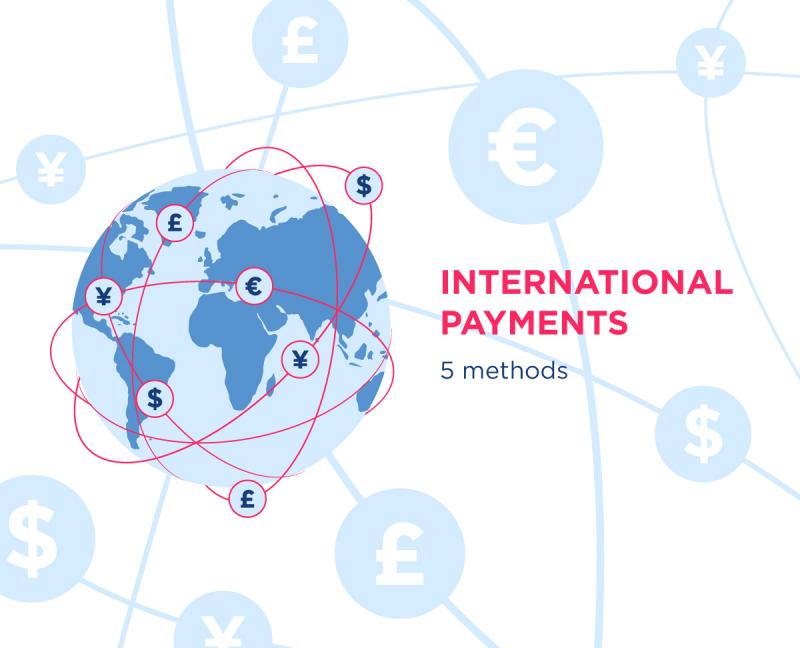
All payments carry an element of risk and uncertainty, but cross-border payments are more complex and riskier than domestic transactions. As businesses turn to e-commerce in growing numbers, and as digital and mobile technology make online shopping simple for consumers, there has been a huge increase in international commerce and thus online payments. And with Covid-19 disrupting the high street, the global online marketplace has had a further boost.
So, what are the different types of payment that can help your business handle e-commerce smoothly and securely across borders? Here are five common payment methods and their advantages and disadvantages for buyers and sellers.
Card payments have increased dramatically in recent years, with technology enabling remote payments known as card not present (CNP) transactions. Cards are by the far the most popular means of payment in Europe and the Americas, and today you can buy practically anything online using debit and credit cards, stimulating the huge growth in e-commerce and now mobile commerce.
This growth means it’s essential for e-commerce businesses to accept cards online and integrate with all the major and trusted card schemes (eg, Visa and MasterCard) as well as e-commerce modules such as Magento, WooCommerce and PrestaShop. And if merchants lack fully-functioning e-commerce websites, they can use payment links that allow customers to click a one-time link and securely enter their card details. For example, Safenetpay provides this service via its portal.
|
Pros |
Cons |
|
|
SWIFT stands for Society for Worldwide Interbank Financial Telecommunication. A foundation of the global banking community since 1973, SWIFT is a secure messaging service which transmits payment instructions via bank identifier codes (known as BICs). SWIFT doesn’t move money itself but instead provides the standards for international payments. Using SWIFT BICs, payments can be routed securely worldwide via a network of correspondent banks.
|
Pros |
Cons |
|
|
A cryptocurrency is a digital medium of exchange, an internet-based asset that is an alternative to traditional currencies. The best-known example is Bitcoin but there are now more than 2,000 cryptocurrencies. Blockchain technology is the power behind cryptocurrencies, and it ensures that a cryptocurrency is not controlled by any central authority.
|
Pros |
Cons |
|
|
A digital wallet (or e-wallet) functions just like a physical wallet. It allows you to store credit cards and other forms of payment, as well as information such as ID cards and passwords, but everything is held digitally rather than physically. With a digital wallet, you can make payments quickly and easily using communication technology. For example, mobile communication enables consumers to purchase items using their smartphones. A bank account is not required to use a digital wallet, which helps those who are excluded from mainstream banking. Digital wallet brands include Apple Pay, Google Pay, PayPal, MasterPass, and Amazon Pay.
|
Pros |
Cons |
|
|
Strictly speaking, alternative payment methods include digital wallets, cryptocurrencies and even debit card transactions. Anything that doesn’t involve cash or cards can be classified as alternative, and it’s a category that is growing all the time thanks to fintech and paytech initiatives.
Alternative payment methods should always be considered by e-commerce businesses that want to appeal to the widest number of customers and in particular accommodate local payment preferences. For example, China is a leader in alternative payment methods such as Alipay and WeChat Pay. When choosing a payment provider to support international payments, look for a partner who covers the field and can integrate with new payment methods as they emerge. With Safenetpay, you can easily accept Alipay, WeChat Pay, Paysafecash, and over 150 other card alternatives.
|
Pros |
Cons |
|
|
Safenetpay can help any business that trades either domestically or internationally. If you want to explore payment options for your business, including setting up a business account, see Safenetpay’s wide range of services . And if you want to know more about today’s digital payments, see our guide to online payment systems.